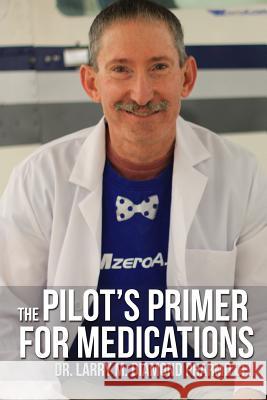The Pilot's Primer for Medications » książka
The Pilot's Primer for Medications
ISBN-13: 9780692248140 / Angielski / Miękka / 2014 / 152 str.
Forward By Rod Machado CFII - Anyone who has earned a pilot certificate is intimately familiar with the cost of that endeavor. You invest your time and money-large blocks of daylight hours spread out over many months and literally thousands of dollars-to earn the privilege of taking a flying machine into the air. Your watch and wallet, however, say nothing about the blood, sweat, and tears involved in this enterprise. You had to overcome frustration, confusion, and self-doubt as you learned to move a piston-powered conveyance safely from one airport to the next. Congratulations to you Yours is a magnificent accomplishment. Now hear this. Everything that you earned and learned can be taken away from you instantly by putting the wrong little pill in your mouth. That's right. Take an unapproved medication (one that's not sanctioned by the FAA), and your friendly aviation medical examiner (AME) suddenly becomes the repo man. As a representative of the FAA, the good doctor is obliged to repossess (so to speak) your medical certification to act as pilot in command because you no longer meet the FAA's standards. Sure, you might eventually reclaim your medical certificate, but not without further investment of your time and money. There may be a pain pill big enough to assuage the headache this causes, but there's no way to swallow it. In an ideal world, this wouldn't matter much. Your AME would tell you to go back to your physician, have him or her prescribe a drug that's approved by the FAA, then return to pick up your medical certificate. No muss, no fuss, no extensive and expensive FAA involvement. Unfortunately, the only place on earth where this "commonsense" approach could happen is in Fantasyland at the Disneyland theme park. Ultimately, you are responsible for knowing what medications or medical procedures are acceptable to the FAA for the maladies that affect you. Until now, it was a megaorder challenge to identify these medications. Here is where fortune smiles on you. My friend, Dr. Larry Diamond's new book, The Pilot's Primer for Prescription Medications, is the resource that should be in every pilot's library, if not flight bag. Dr. Diamond's book is the pilot's practical resource for prescription medication. It's easy to navigate, easy to read, and easy to use. It's your initial source for identifying the medications that the FAA considers acceptable at this point in time. So prepare for your next medical examination by reading Dr. Diamond's book now, not later. Make sure the medications you're taking (if any) or are planning on taking are on the FAA's approved list. If not, do something about it before your AME does. Following the advice put forth in this valuable book will keep you from being unpleasantly surprised during your next visit to the AME. Take it from me-Dr. Larry Diamond knows what he is talking about. He's a master of medical molecules whose informative new book will keep you airworthy for many years to come.











